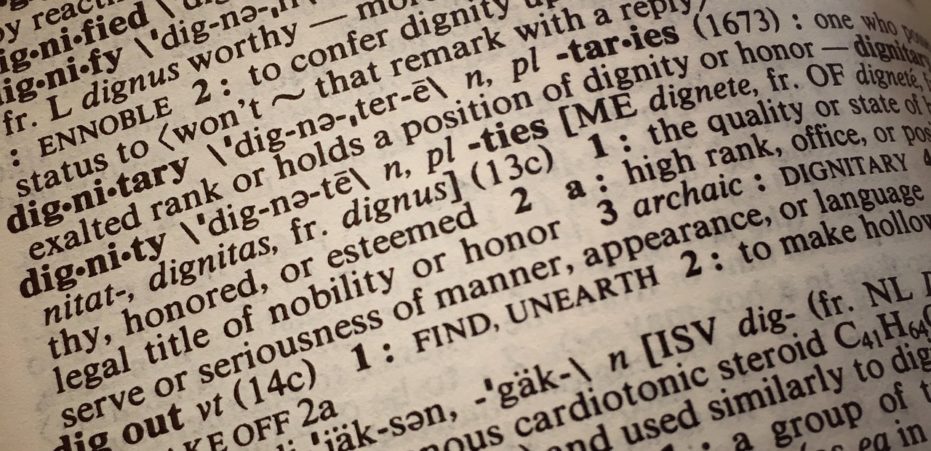“All human beings are born free and equal in dignity and rights” So begins the Universal Declaration of Human Rights, which was proclaimed by the United Nations General Assembly in Paris 70 years ago, on 10th December 1948.
The idea of dignity, which is the basis of any human right, has a long history that goes back to the fundamental Christian teaching that all human beings have an intrinsic value and are created morally equal. This value does not depend on circumstances or specific characteristics but simply on the fact that human beings are created by God. They have a value in themselves by dint of that fact.
The uniqueness of every person has moral significance, as it implies an obligation to respect and cherish each single human. There is value inherent to every person. This is precisely what we mean by dignity and this the source of all individual and collective rights.
Samuel Moyn, professor of law and history at Yale University, has pointed out that the first country to mention dignity in its Constitution was Ireland in 1937. As an alternative to classical liberalism and to totalitarian regimes, both of which were perceived as forms of secularism, the Irish Constitution was inspired by Christian values and specifically by the principle of human dignity.
In invoking the Trinity, the Preamble proclaims that the Irish people adopt Bunreacht na hÉireann “so that the dignity and freedom of the individual may be assured”. Not simply the freedom, as in the liberal tradition, but also the dignity of the individual.
In that same year, Pope Pius XI wrote his encyclical Mit Brennender Sorge in which he denounced Nazism because it “violates every human right and dignity”. This was in line with a long tradition of Catholic social teaching about the necessary respect for all persons, as created by God.
It was only a few years later, after the tragedy of World War II, that the principle of dignity appeared in new national constitutions and international declarations. The Charter of United Nations (1945) and the Universal Declaration of Human Rights (1948) both mention human dignity, and so does, for example, the first article of the German Constitution (1949): “Human dignity shall be inviolable.”
The Preamble of the Charter says that the peoples of the United Nations are determined to “reaffirm faith in fundamental human rights, in the dignity and worth of the human person, in the equal rights of men and women and of nations large and small”.
The Universal Declaration, mentions dignity twice in its preamble, then in its first article (“All human beings are born free and equal in dignity and rights”), and later two more times with respect to just remuneration and to economic, social and cultural rights. The French philosopher Jacques Maritain, a Catholic convert, had a central role in the drafting of the Declaration.
In celebrating 70 years of the Universal Declaration of Human Rights let us not forget the long history behind its fundamental principles, a history deeply indebted to Christianity.
(See also Gaven Kerr, Human Rights and Human dignity)
















